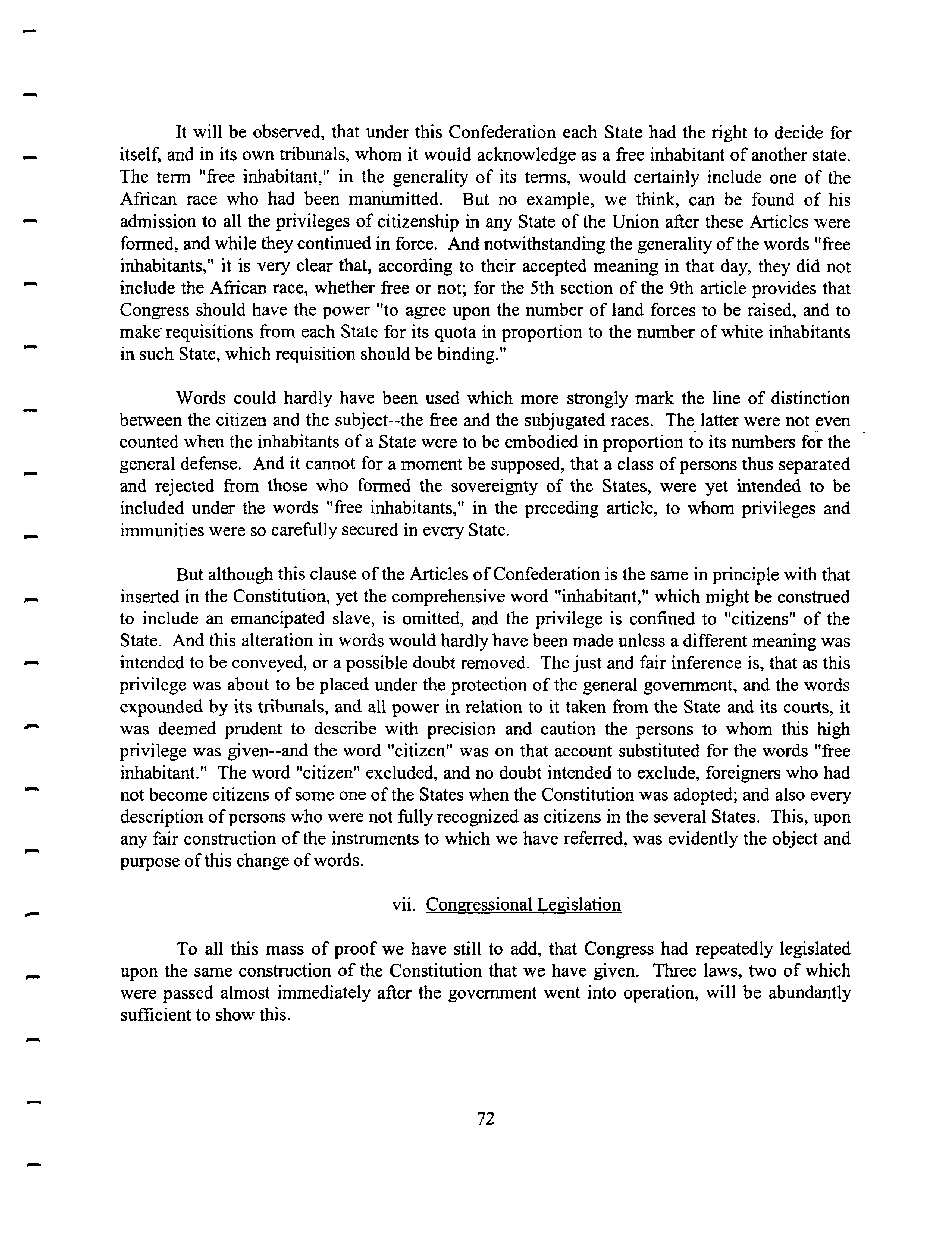|
It will be observed, that under this Confederation each State had the right to decide for
itself, and in its own tribunals, whom it would acknowledge as a free inhabitant of another state.
The term "free inhabitant," in the generality of its terms, would certainly include one of the
African race who had been manumitted. But no example, we think, can be found of his
admission to all the privileges of citizenship in any State of the Union after these Articles were
formed, and while they continued in force. And notwithstanding the generality of the words "free
inhabitants," it is very clear that, according to their accepted meaning in that day, they did not
include the African race, whether free or not; for the 5th section of the 9th article provides that
Congress should have the power "to agree upon the number of land forces to be raised, and to
make requisitions from each State for its quota in proportion to the number of white inhabitants
in such State, which requisition should be binding."
Words could hardly have been used which more strongly mark the line of distinction
between the citizen and the subject—the free and the subjugated races. The latter were not even
counted when the inhabitants of a State were to be embodied in proportion to its numbers for the
general defense. And it cannot for a moment be supposed, that a class of persons thus separated
and rejected from those who formed the sovereignty of the States, were yet intended to be
included under the words "free inhabitants," in the preceding article, to whom privileges and
immunities were so carefully secured in every State.
But although this clause of the Articles of Confederation is the same in principle with that
inserted in the Constitution, yet the comprehensive word "inhabitant," which might be construed
to include an emancipated slave, is omitted, and the privilege is confined to "citizens" of the
State. And this alteration in words would hardly have been made unless a different meaning was
intended to be conveyed, or a possible doubt removed. The just and fair inference is, that as this
privilege was about to be placed under the protection of the general government, and the words
expounded by its tribunals, and all power in relation to it taken from the State and its courts, it
was deemed prudent to describe with precision and caution the persons to whom this high
privilege was given—and the word "citizen" was on that account substituted for the words "free
inhabitant." The word "citizen" excluded, and no doubt intended to exclude, foreigners who had
not become citizens of some one of the States when the Constitution was adopted; and also every
description of persons who were not fully recognized as citizens in the several States. This, upon
any fair construction of the instruments to which we have referred, was evidently the object and
purpose of this change of words.
vii. Congressional Legislation
To all this mass of proof we have still to add, that Congress had repeatedly legislated
upon the same construction of the Constitution that we have given. Three laws, two of which
were passed almost immediately after the government went into operation, will be abundantly
sufficient to show this.
72
�
|

